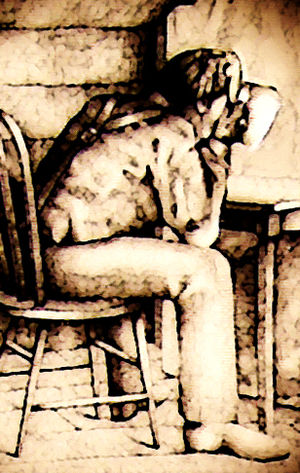Book of Mormon
The Book of Mormon is a sacred text of the Latter Day Saint movement, which adherents believe contains writings of ancient prophets who lived on the American continent from approximately 2200 BC to AD 421. It was first published in March 1830 by Joseph Smith, the founder of the Church of Jesus Christ of Latter-day Saints (LDS Church), as The Book of Mormon: An Account Written by the Hand of Mormon upon Plates Taken from the Plates of Nephi.
Content and Structure
The Book of Mormon is divided into smaller books, named after the individuals who are said to be their primary authors. It is written in a language referred to as "Reformed Egyptian," a script unknown to linguistics, which Joseph Smith claimed to have translated through divine guidance by using a set of golden plates he found buried in a hill in upstate New York. The narrative is a complex chronicle of ancient American civilizations, focusing on two main groups, the Nephites and the Lamanites, who descended from two families who left Jerusalem in 600 BC. The text covers their histories, wars, contentions, and teachings, with a significant focus on the visit of Jesus Christ to the Americas after his resurrection.
Theological Significance
The Book of Mormon is considered by its followers to be another testament of Jesus Christ, complementing the Bible. It teaches about Christ's dealings with the inhabitants of ancient America and asserts His divinity, the doctrine of the Atonement, and the need for repentance and baptism. The book also emphasizes the importance of faith, prayer, fasting, humility, and service.
Historical and Cultural Impact
Since its publication, the Book of Mormon has been a subject of controversy and fascination. Critics question its historical authenticity and the circumstances of its translation. However, it has played a crucial role in the development and growth of the LDS Church and the broader Latter Day Saint movement. It has been translated into over 100 languages and millions of copies have been distributed worldwide.
Criticism and Controversies
Critics of the Book of Mormon have raised concerns about its historical and linguistic claims, pointing out anachronisms and inconsistencies with known pre-Columbian history. Despite these criticisms, faithful members of the LDS Church and other Latter Day Saint movement denominations regard the book as a miraculous and divinely inspired scripture.
In Popular Culture
The Book of Mormon has also entered popular culture, most notably with the 2011 Broadway musical The Book of Mormon, which satirizes the beliefs and practices of the LDS Church. Despite its controversial nature, the musical has been a commercial success and has increased public interest in the Book of Mormon.
This article is a Religious-text stub. You can help WikiMD by expanding it!
Transform your life with W8MD's budget GLP-1 injections from $125.
W8MD offers a medical weight loss program to lose weight in Philadelphia. Our physician-supervised medical weight loss provides:
- Most insurances accepted or discounted self-pay rates. We will obtain insurance prior authorizations if needed.
- Generic GLP1 weight loss injections from $125 for the starting dose.
- Also offer prescription weight loss medications including Phentermine, Qsymia, Diethylpropion, Contrave etc.
NYC weight loss doctor appointments
Start your NYC weight loss journey today at our NYC medical weight loss and Philadelphia medical weight loss clinics.
- Call 718-946-5500 to lose weight in NYC or for medical weight loss in Philadelphia 215-676-2334.
- Tags:NYC medical weight loss, Philadelphia lose weight Zepbound NYC, Budget GLP1 weight loss injections, Wegovy Philadelphia, Wegovy NYC, Philadelphia medical weight loss, Brookly weight loss and Wegovy NYC
|
WikiMD's Wellness Encyclopedia |
| Let Food Be Thy Medicine Medicine Thy Food - Hippocrates |
Medical Disclaimer: WikiMD is not a substitute for professional medical advice. The information on WikiMD is provided as an information resource only, may be incorrect, outdated or misleading, and is not to be used or relied on for any diagnostic or treatment purposes. Please consult your health care provider before making any healthcare decisions or for guidance about a specific medical condition. WikiMD expressly disclaims responsibility, and shall have no liability, for any damages, loss, injury, or liability whatsoever suffered as a result of your reliance on the information contained in this site. By visiting this site you agree to the foregoing terms and conditions, which may from time to time be changed or supplemented by WikiMD. If you do not agree to the foregoing terms and conditions, you should not enter or use this site. See full disclaimer.
Credits:Most images are courtesy of Wikimedia commons, and templates, categories Wikipedia, licensed under CC BY SA or similar.
Contributors: Prab R. Tumpati, MD






